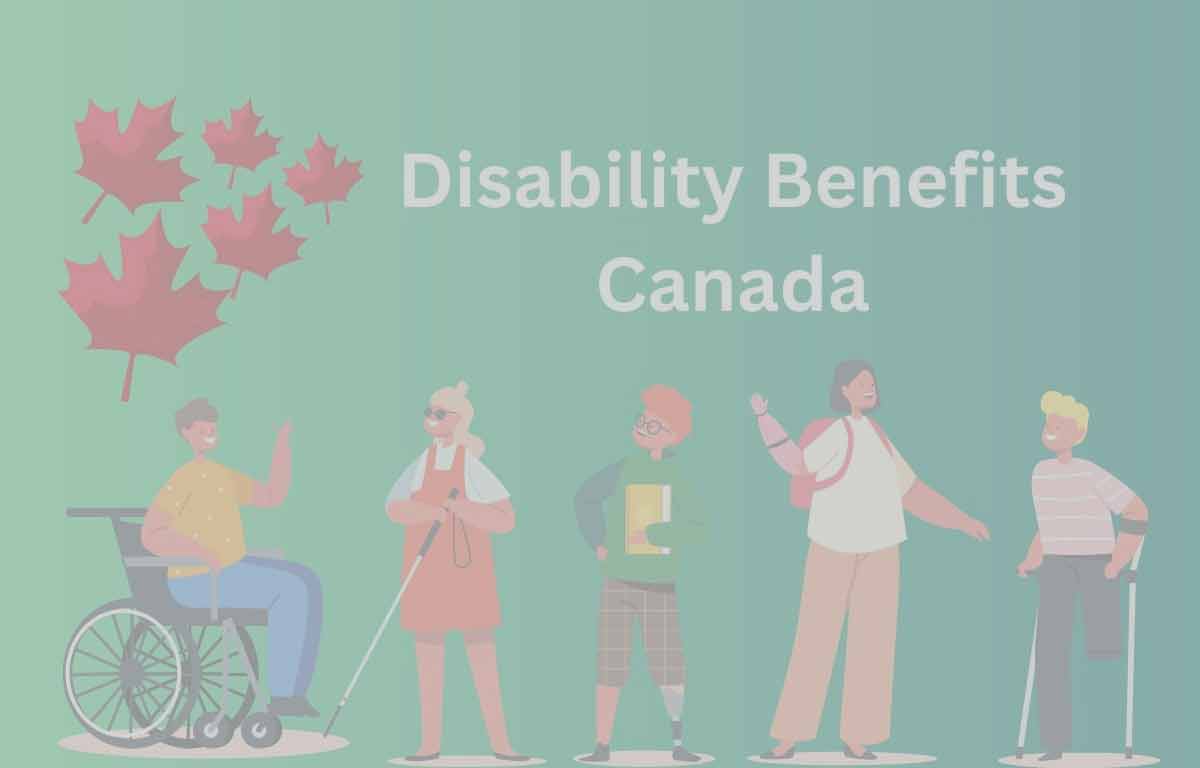For people with a severe and ongoing impairment that prohibits them from working, CPP-D is a monthly Disability benefit offered through the Canada Pension Plan. Applicants must have paid enough into the CPP during their working years in order to be eligible.
The contribution made by the person and the length of their employment history determines the benefit’s size.
It is accessible to qualified workers who have made Employment insurance program contributions. Up to 15 weeks of income replacement are offered by the benefit.
The Canada Pension Plan (CPP) Disability Benefits
- They are under 65 and have paid enough into the CPP
- Have a physical or mental impairment that prevents you from performing any
- Type of substantial gainful activity on a regular basis has an impairment that is long-lasting, of indefinite duration, or is likely to cause death

Two Types of CPP Disability Benefits
Your CPP disability payment immediately converts to a CPP retirement pension when you turn 65.
| Benefits Name | Age | Must Be |
| CPP disability benefit | Under 65 | Not receiving the CPP retirement pension |
| CPP post-retirement disability benefit | From 60 to 65 | Already receiving the CPP retirement pension |
Note: We intend to determine your eligibility for any qualifying disability within 120 calendar days (4 months).
Reference: https://www.canada.ca/en/services/benefits/publicpensions/cpp/cpp-disability-benefit.html
Child Disability Benefit (CDB)
Getting the CDB:
- To get the Canada Child Benefit (CCB), you must be eligible.
- To be eligible for the DTC (disability tax credit), your child must be.
- Both you and your child must continue to be eligible for the CCB and DTC.
- Even if you earned no income at all or your income is tax-exempt, you must file your taxes on time every year to prevent delays or interruptions in your benefit payments.
- Your benefit and credit payments are computed by the CRA using data from your income tax and benefit return.
- You must also keep your personal information current with the CRA in order to ensure that you are receiving the appropriate number of benefits and credits.
Reference:- https://www.canada.ca/en/services/benefits/publicpensions/cpp/cpp-childrens-benefit.html
Different Types of Disability Programs In Canada
To support people with impairments, Canada offers a number of disability benefits and services.
- Employment Insurance (EI):
- EI Sickness Benefits offer short-term financial assistance to people who are unable to work because of illness, injury, or confinement.
- It is accessible to qualified workers who have made contributions to the EI program.
- Provincial and Territorial Disability Programs:
- In Canada, each province and territory have its own disability support programs that offer services and financial aid to people with disabilities.
- These initiatives may include financial assistance, health insurance, assistive technology, and employment support.
- Disability Tax Credit (DTC):
- The federal government offers the Disability Tax Credit, a non-refundable tax credit, to people with impairments and those who financially support them.
- It offers tax assistance to people with disabilities and the people who care for them.
- Registered Disability Savings Plan (RDSP):
- The RDSP is a long-term savings program created to assist people with disabilities in saving money for the future.
- Government grants and bonds may be used to increase contributions made to an RDSP.
- Although RDSP withdrawals are often taxable, they are meant to support the beneficiary financially.
Reference: https://www.canada.ca/en/services/benefits/disability.html
What is the Canada Pension Plan Disability (CPP-D)?
A monthly benefit offered by the Canada Pension Plan (CPP) for those with severe and persistent disabilities that prevent them from working is known as the Canada Pension Plan Disability (CPP-D).
Candidates must have contributed enough to the CPP during their working years to be eligible. The benefit sum is determined by a person’s contributions and employment history.
Are there provincial disability programs in Canada?
A: In Canada, each province and territory has its own programs to support people with disabilities. These initiatives offer services and financial support to people with impairments.
Benefits may include financial assistance, health insurance, accessibility equipment, employment assistance, and more. Each province or territory has different eligibility requirements and benefits.